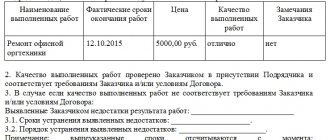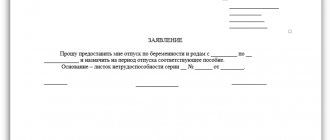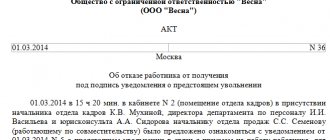A significant portion of decisions, rulings and decrees made by bodies at various levels of government and officials of other institutions are subject to appeal. This happens due to insufficient qualifications of personnel or simple negligence. The initial resolution of issues often does not satisfy the applicants, or violates the legal rights of persons related to the case.
The appeal system has its own hierarchy. A complaint against the decision of a magistrate is filed with a higher district court, objections to a court order are filed with the judge who issued the order, and a complaint is written to the chairman of the court about the work of judges working in the same court.
From whom complaints are accepted?
According to the Civil Procedure Code, CAS, Code of Criminal Procedure and Arbitration Procedure Code of the Russian Federation, all interested persons and parties can apply to the courts:
- citizens;
- prosecutor;
- government departments;
- local government;
- various organizations and other bodies.
For military personnel, a separate procedure for protecting rights is provided, which involves filing a complaint specifically in a military court.
If the case is considered through writ proceedings, objections to the order are accepted from the defendant.
A complaint can be filed with the court not only by an individual, but also by his representative. To consider a complaint, the court first determines the eligibility of the applicant. If the person who applied is not related to the case, the judge may refuse to consider the complaint.
Statement of claim: how to draw it up yourself in 2021?
Did you know that in 70% of cases, a well-drafted claim will help you avoid going to court? If litigation is inevitable, it is very important to file a claim in court: legally competent, in compliance with the standards for the application, listing all the evidence and justifying your claims (as the plaintiff) to the defendant. A statement of claim without errors is the basis and the first step towards resolving a legal dispute in your favor!
Often, when drawing up statements of claim or complaints (cassation, appeal), people encounter a problem: the document is not accepted. Why does the court refuse to accept a claim or complaint? Let's list the main reasons.
Reasons for the court to return statements of claim to the plaintiff:
- Incorrect completion of the claim form;
- Lack of references to legislation;
- Outdated form;
- Lack of preliminary actions;
- No evidence provided;
- Others were not stated (the plaintiff’s demands were incorrectly stated).
The claim was not accepted?
Lawyers at Legal Guaranty Law Firm will draw up a legally competent statement of claim. Analysis of the prospects of a legal dispute - as a gift!
If a legal dispute is not promising, the chances of winning are minimal, we will be honest about this, and you will be able to avoid unnecessary expenses.
Find out the cost
Why are claims returned by the court and what to do about it?
First of all, we say NO to templates of claims.
Samples of statements of claim are available on many legal resources. Including ours. There are also templates. They are dedicated to some standard situation, but every case is unique!
If you decide to use a template statement: look for the closest option to your situation. Study the legal framework for drawing up and the procedure for filing an application to the court.
Remember: if you draft a statement of claim incorrectly, you may lose your legal dispute. It will not be possible to file a claim again with the same requirements. Even if you are sure that you are right and know for sure that the law is on your side.
Secondly, we comply with all the rules that apply to claims in 2021.
The Code of Civil Procedure of the Russian Federation strictly regulates the rules for drawing up a statement of claim in court. Let's figure out what mandatory stages of the process of filing a claim in court exist and what standards must be followed in order for the statement of claim to be accepted by the court.
We determine the jurisdiction of the dispute. We indicate in which court the claim is being filed.
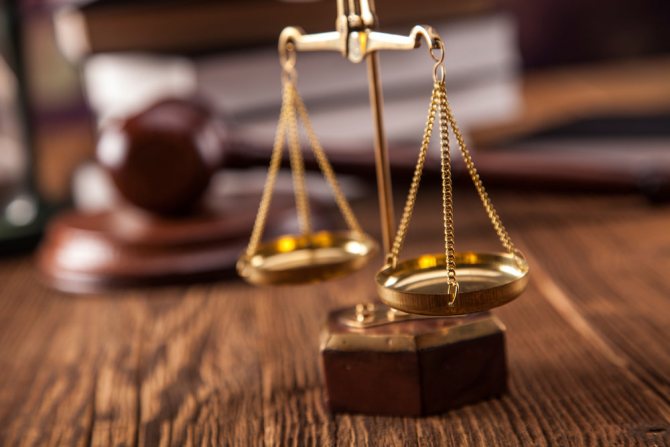
The header of the statement of claim must indicate the name of the court in which the claim will be filed.
First, you need to determine the specific link in the system of courts of general jurisdiction to which the claim will be filed.
Thus, “simple” and “inexpensive” claims are considered by magistrates (for example, claims for divorce if there is no dispute about children, claims for the division of jointly acquired property between spouses and property disputes if the amount of claims is up to 50,000 rubles).
A complete list of categories of cases considered by magistrates is indicated in Art. 23 Code of Civil Procedure of the Russian Federation.
More complex claims, as well as claims with a larger amount of claims, are heard by district courts .
As a general rule, a statement of claim is filed in court at the place of residence of the person to whom the claims are addressed.
Exceptions to this rule are listed in Chapter 3 of the Code of Civil Procedure of the Russian Federation (for example, claims for rights to real estate are filed at the place of its location).
Information about the plaintiff and the defendant in the claim
The statement of claim contains information about the plaintiff and the defendant, namely:
- Full name of individuals or names of legal entities,
- information about representatives (if necessary),
- information about the place of residence of an individual (zip code, subject of the Federation, city or other locality, street, house, apartment) or location of the organization.
If information about the defendant is not reliably known, the last known place of residence of the individual (location of the organization) should be indicated.
Additional information in the statement of claim
From October 1, 2021, the claim contains additional information:
In relation to the defendant – an individual:
- Date and place of birth,
- place of work,
- You must indicate at least one of the following identifiers: SNILS, INN, OGRNIP, series and number of an identity document, driver’s license, vehicle registration certificate;
In the case of a defendant legal entity, you must indicate the INN and OGRN, if they are known.
The specified information can be taken from the contract (if the claims are due to failure to fulfill contractual obligations).
Information about the identifiers of legal entities and individual entrepreneurs is posted on the website of the tax authority in the public domain.
The most significant part of the statement of claim to the court
Of particular importance in the statement of claim is the description: what exactly is the violation or threat of violation of the plaintiff’s rights and what are his requirements in relation to the defendant.
In legal language, this stage is called determining the subject of the claim. To put it simply, it is important to clearly formulate what exactly the plaintiff wants to get from the defendant.
Argumentation of the plaintiff’s claims and the cost of the claim
The argumentation of the plaintiff's claims forms the basis of the claim. It is necessary to describe the circumstances on which the plaintiff’s claims are based and describe the evidence supporting them.
The price of the claim is determined if the claimed claims can be assessed in a monetary amount, and a calculation of this amount is also drawn up.
The cost of the claim is the monetary expression of the plaintiff’s claims against the defendant. Depending on the type of dispute, this could be, for example, the amount of debt or the value of property. Based on the price of the claim to be assessed, the amount of the state duty is determined (Article 333.19 of the Tax Code of the Russian Federation). You can also use the “State Duty Calculator” service, available on court websites.
Information is provided on compliance with the mandatory pre-trial procedure for filing claims against the defendant.
Mandatory pre-trial procedures may be provided for by law for certain types of claims. If pre-trial procedure is mandatory, the complaint should describe how and when the claim was made to the potential defendant before filing the lawsuit.
Reconciliation between the plaintiff and the defendant
If the plaintiff took any actions to reconcile with the defendant (for example, correspondence was conducted), then this fact should also be reflected in the statement of claim.
Appendix to the statement of claim
A list of attachments to the statement of claim is provided. The list of attached documents will, of course, be determined individually each time, based on the specifics of the plaintiff’s requirements.
The Code of Civil Procedure of the Russian Federation establishes that the following documents must be attached to the claim without fail:
- proof of payment of the state fee (usually a receipt);
- a power of attorney or other document on the authority of the representative, if the claim is signed and/or is not filed by the plaintiff in person;
- documents and other evidence confirming the circumstances referred to by the plaintiff in accordance with paragraph 4 of the algorithm presented above;
- documents on compliance with the mandatory pre-trial procedure for submitting your claims to the defendant, if provided for by law;
- calculation of the amount required from the defendant in an amount that allows the court to transfer this document to each person participating in the case;
- a postal receipt or other similar document confirming the sending of copies of the claim to all parties to the dispute.

Actions and inactions that violate your rights
A complaint is filed in court as a result of a violation of the rights of citizens or parties to the process. To avoid refusals of consideration, it is necessary to adhere to the established hierarchy:
- The actions of the investigator should initially be complained to the investigative committee or the prosecutor's office.
- For inaction of the prosecutor's office - to the immediate superior of the specialist who violated your rights.
- For employees of a certain judicial body - to the chairman of that court.
Failure of appeals
When repeated independent appeals to all acceptable authorities do not bring satisfactory results, it is worth thinking about legal support from a competent specialist. Despite the fact that lawyers are required to participate only in criminal trials, you can always turn to them with a civil case. A competent lawyer engaged in private practice can tell you how to write a complaint to the court.
You should approach the choice of a specialist very carefully, especially if previous attempts to restore rights were unsuccessful. As practice shows, a private complaint to the court is drawn up by lawyers who were approached by citizens who were trying to resolve the issue on their own. The applicant’s initial mistakes significantly complicate the resolution of the case, and sometimes even leave no chance for a positive outcome.
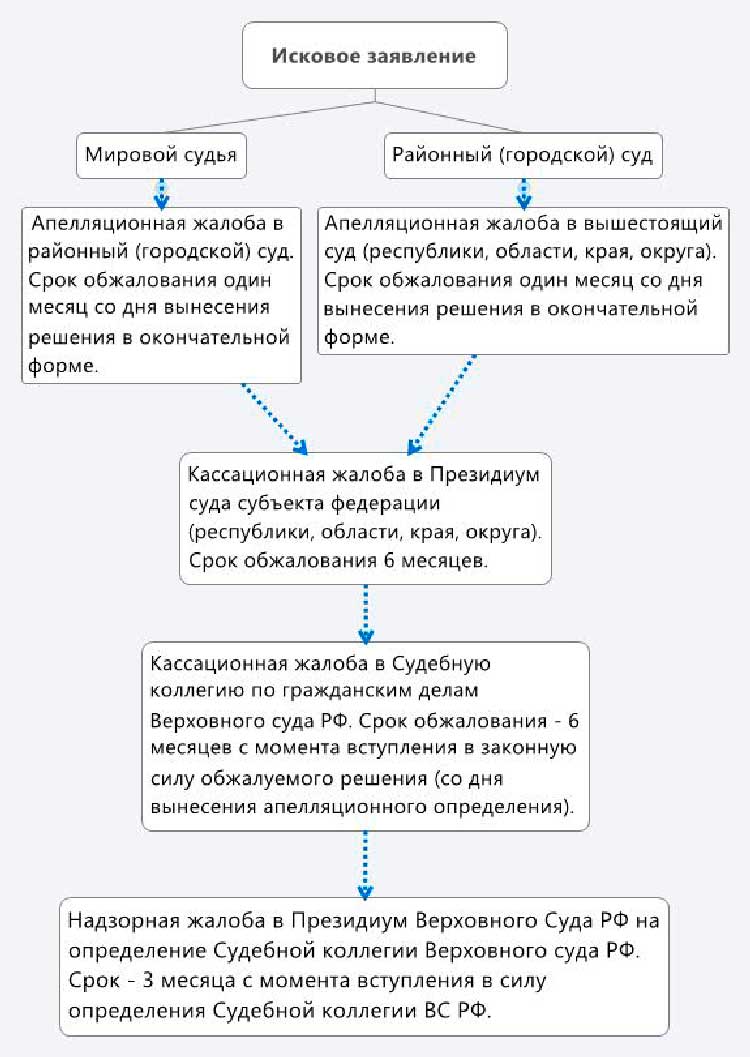
When can you appeal to the Constitutional Court?
First of all, it should be understood that the Constitutional Court of the Russian Federation is not an appellate, cassation or supervisory authority. To a greater extent, the Constitutional Court is an authority that gives an opinion on the compliance of the applied norms of law with the constitutional foundations of the Russian Federation.
Expert opinion
Kozlov Andrey Kirillovich
Lawyer with 10 years of experience. Specialization: criminal law. More than 3 years of experience in developing legal documentation.
That is, the applicant applying to the Constitutional Court does not ask for a cassation or appeal, but for clarification of how this or that letter of the law applied to him complies with the Constitution.
For example, a trivial situation in which a citizen receives a ban on traveling abroad due to his debts. First of all, the Constitution of the Russian Federation provides for the human right to free movement. This is a fundamental right.
Moreover, the International Convention for the Protection of Human Rights and Fundamental Freedoms, as well as the International Rules of the ECHR, which the Russian Federation has ratified, provide for the responsibility of the state for depriving it of the right of movement and freedom for debts.
A person who has received a ban has the right to appeal to the Constitutional Court to question the legality of this ban, since it violates his rights granted by the Constitution.
Composition of the application and methods of submitting it
It is recommended to entrust the preparation of a complaint or objection to a specialist. When deciding to do this yourself, you should carefully study the text of the disputed document or the regulatory framework relating to your case.
The basic rules for writing text are no different from any other statements that do not have a strict form. The complaint must include:
- name of the judicial authority and details of the applicant;
- a clear description of the problem;
- links to legal acts whose norms you consider violated;
- list of attached documents.
Maintain a business-like style of writing, excluding inappropriate emotional overtones. In the description, try to present only facts and dates that have been confirmed.
The finished document must be duplicated, keeping one copy for yourself. If the interests of other persons are affected, it is also necessary to prepare sample documents for them.


